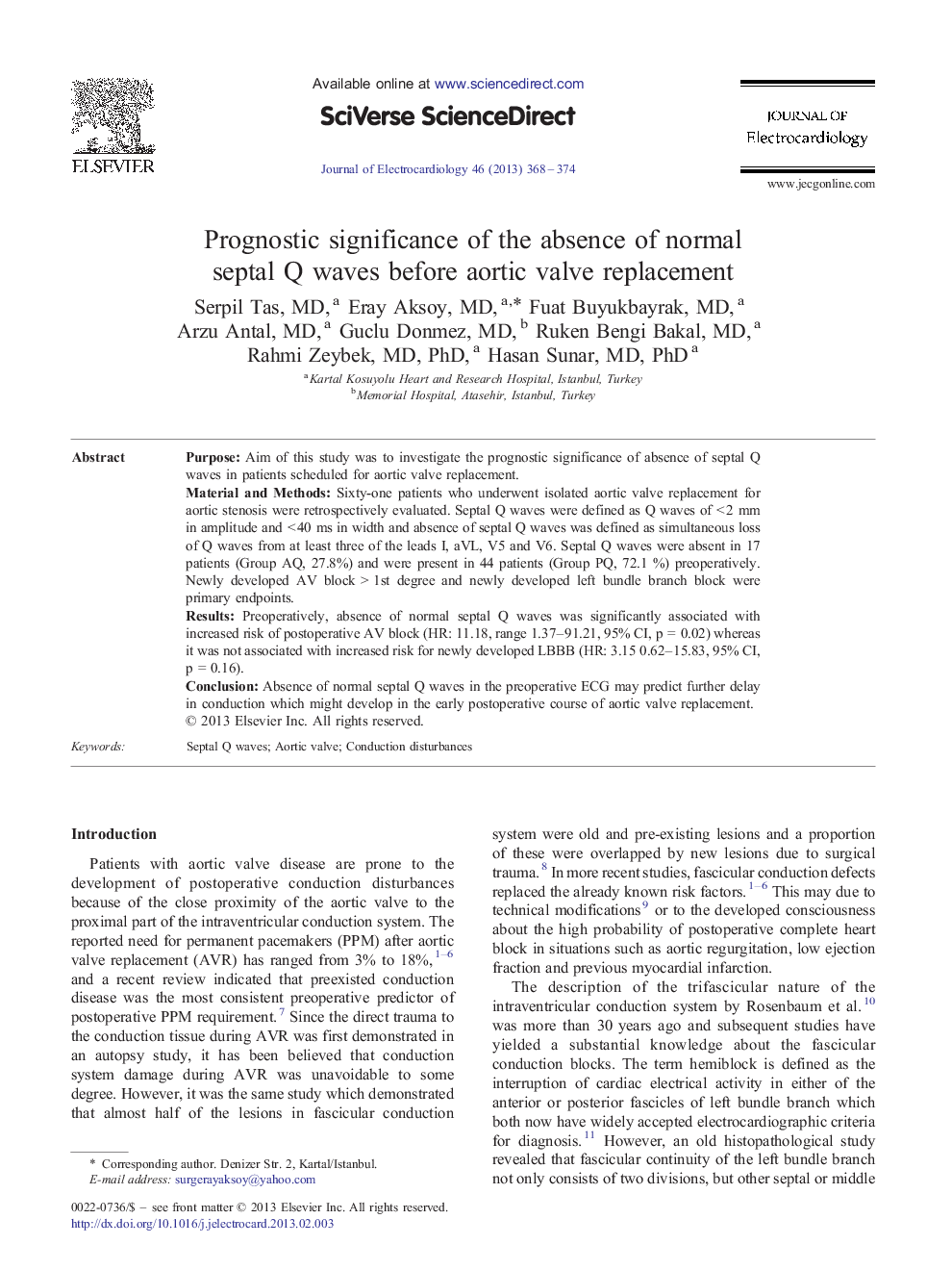| Article ID | Journal | Published Year | Pages | File Type |
|---|---|---|---|---|
| 2967870 | Journal of Electrocardiology | 2013 | 7 Pages |
PurposeAim of this study was to investigate the prognostic significance of absence of septal Q waves in patients scheduled for aortic valve replacement.Material and MethodsSixty-one patients who underwent isolated aortic valve replacement for aortic stenosis were retrospectively evaluated. Septal Q waves were defined as Q waves of < 2 mm in amplitude and < 40 ms in width and absence of septal Q waves was defined as simultaneous loss of Q waves from at least three of the leads I, aVL, V5 and V6. Septal Q waves were absent in 17 patients (Group AQ, 27.8%) and were present in 44 patients (Group PQ, 72.1 %) preoperatively. Newly developed AV block > 1st degree and newly developed left bundle branch block were primary endpoints.ResultsPreoperatively, absence of normal septal Q waves was significantly associated with increased risk of postoperative AV block (HR: 11.18, range 1.37–91.21, 95% CI, p = 0.02) whereas it was not associated with increased risk for newly developed LBBB (HR: 3.15 0.62–15.83, 95% CI, p = 0.16).ConclusionAbsence of normal septal Q waves in the preoperative ECG may predict further delay in conduction which might develop in the early postoperative course of aortic valve replacement.
